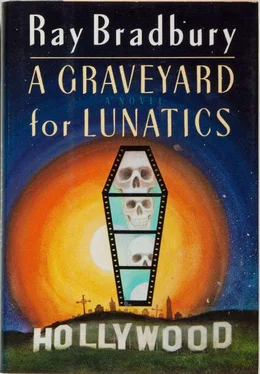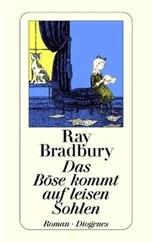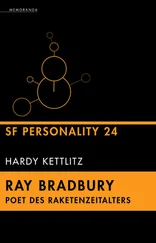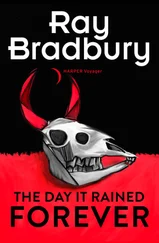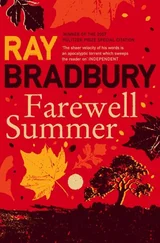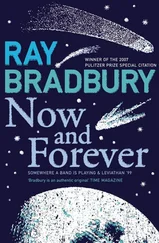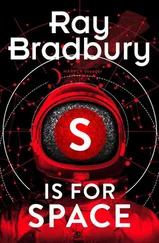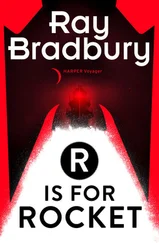“You’ve rammed the boat and sunk the crew!” The priest downed his whiskey and refilled, chortling, and then he and I rambled, like two old screen toughs, over movie-script country. I told him my Messiah, he told me his Christ.
Then he said: “Sounds like you’ve done well, patching the script. But then the old boys, two thousand years back, did patchwork too, if you remark the difference between Matthew and John.”
I stirred in my chair with a furious need to babble, but dared not throw boiling oil on a priest while he dispensed cool holy spring water.
I stood up. “Well, thanks, father.”
He looked at my outstretched hand. “You carry a gun,” he said, easily, “but you’ve not fired it. Put your behind back on that chair.”
“Do all priests talk like that?”
“In Ireland, yes. You’ve danced around the tree, but shaken no apples. Shake.”
“I think I will have a bit of this.” I picked up the snifter and sipped. “Well— Imagine that I were a Catholic—”
“I’m imagining.”
“In need of confession—”
“They always are.”
“And came here after midnight—”
“An odd hour.” But a candle was lit in each of his eyes.
“And knocked on the door—”
“Would you do that?” He leaned slightly toward me. “Go on.”
“Would you let me in?” I asked.
I might have shoved him back in his chair.
“Once, weren’t churches open all hours?” I pursued.
“Long ago,” he said, much too quickly.
“So, father, any night I came in dire need, you would not answer?”
“Why wouldn’t I?” The candlelight flared in his eyes, as if I had raised the wick to quicken the flare.
“For the worst sinner, maybe, in the history of the world, father?”
“There’s no such creature .” Too late, his tongue froze on this last dread noun. His eyes swiveled and batted. He revised his proclamation to give it a new go-round.
“No such person lives.”
“But,” I pursued, “what if damnation, Judas himself, came begging—” I stopped—”late?”
“Iscariot? I’d wake for him, yes.”
“And what if, father, this lost terrible man in need should knock not one night a week but most nights of the year? Would you wake, or ignore the knock?”
That did it. Father Kelly leaped up as if I had pulled the great cork. The color sank from his cheeks and the skin at the roots of his hair.
“You have need to be elsewhere. I will not keep you.”
“No, father.” I floundered to be brave. “You need me to be gone. There was a knock on your door—” I blundered on— “twenty years ago this week, late. Asleep, you heard the door banged—”
“No, no more of this! Get off!”
It was the terrified shout of Starbuck, decrying Ahab’s blasphemy and his final lowering for the great white flesh.
“Out!”
“Out? You did go out, father.” My heart jumped and almost slewed me in my chair. “And let in the crash and the din and the blood. Perhaps you heard the cars strike. Then the footsteps and then the bang and the voices yelling. Maybe the accident got out of hand, if accident it was. Maybe they needed a proper midnight witness, someone to see but not tell. You let in the truth and have kept it since.”
I rose to stand and almost fainted. My rise, as if we were on weights and pulleys, sank the priest back, all but boneless, in his chair.
“You were witness, father, were you not? For it’s just a few yards off and, on Halloween night, 1934, didn’t they bring the victims here?”
“God help me,” mourned the priest, “yes.”
One moment full of fiery air, Father Kelly now gave up his inflammatory ghost and sank, fold on fold, flesh on flesh, into himself.
“Were they all dead when the crowd carried them in?”
“Not all,” said the priest, in shocked recall.
“Thanks, father.”
“For what?” He had closed his eyes with the headache of remembrance and now sprang them wide in renewed pain. “Do you know what you’ve got into?!”
“I’m afraid to ask.”
“Then go home, wash your face and, sinful advice, get drunk!”
“It’s too late for that. Father Kelly, did you give the last rites to any or all?”
Father Kelly shook his head back and forth, wigwagging as if to sign away the ghosts.
“Suppose I did?!”
“The man named Sloane?”
“Was dead. I blessed him, in spite.”
“The other man—?”
“The big one, the famous one, the all powerful—?”
“Arbuthnot,” I finished.
“Him, I signed and spoke and touched with water. And then he died.”
“Cold and dead, stretched out forever, really dead?”
“Christ, the way you put it!” He sucked air and expelled it: “All that—yes!”
“And the woman?” I asked.
“Was the worst!” he cried, new paleness firing the old paleness in his cheeks. “Daft. Crazed and worse than crazed. Out of mind and body and not to be put back in. Trapped between the two. My God, it reminded me of plays I’d seen as a young man. Snow falling. Ophelia suddenly dressed in a terrible pale quiet as she steps into the water and does not so much drown as melt into a final madness, a silence so cold you could not cut it with a knife or sound it with a shout. Not even death could shake that woman’s newfound winter. You hear that ? A psychiatrist said that once! The eternal winter. Snow country from which rare travelers return. The Sloane woman, caught between bodies, out there in the rectory, not knowing how to escape. So she just turned to drown herself. The bodies were taken out by the studio people who had brought them in for respite.”
He talked to the wall. Now he turned to gaze at me, stricken with alarms and growing hate. “The whole thing lasted, what? an hour? Yet it has haunted me these years.”
“Emily Sloane, mad —?”
“A woman led her away. An actress. I’ve forgotten the name. Emily Sloane did not know she was taken. She died the next week or the week after, I heard.”
“No,” I said. “There was a triple burial three days later. Arbuthnot alone. The Sloanes together, or so the story goes.”
The priest regrouped his tale. “No matter. She died.”
“It matters a great deal.” I leaned forward. “Where did she die?”
“All I know is she did not go to the morgue across the street.”
“To a hospital, then?”
“You’ve got all I know.”
“Not all, father, but some —”
I walked to the rectory window to peer out at the cobbled courtyard and the drive leading in.
“If I ever came back, would you tell the same story?”
“I should not have told you anything! I have breached my confessional vows!”
“No, none of what you’ve said was told in private. It simply happened. You saw it. And now it’s done you good to confess at last to me.”
“Go.” The priest sighed, poured another drink, slugged it back. It did nothing to color his cheeks. He only sagged more awry in his flesh. “I am very tired.”
I opened the door of the rectory and looked along the hall toward the altar bright with jewels and silver and gold.
“How is it such a small church has such rich interiors?” I said. “The baptistry alone could finance a cardinal and elect a pope.”
“Once,” Father Kelly gazed into his empty glass, “I might have gladly consigned you to the fires of hell.”
The glass fell from his fingers. He did not move to pick up the pieces. “Goodbye,” I said.
I stepped out into sunlight.
Across two empty lots and a third, heading north from the back of the church, there were weeds and long grass and wild clover and late sunflowers nodding in a warm wind. Just beyond was a two-story white frame house with the name in unlit neon above: HOLLYHOCK HOUSE SANITARIUM.
Читать дальше
Конец ознакомительного отрывка
Купить книгу
